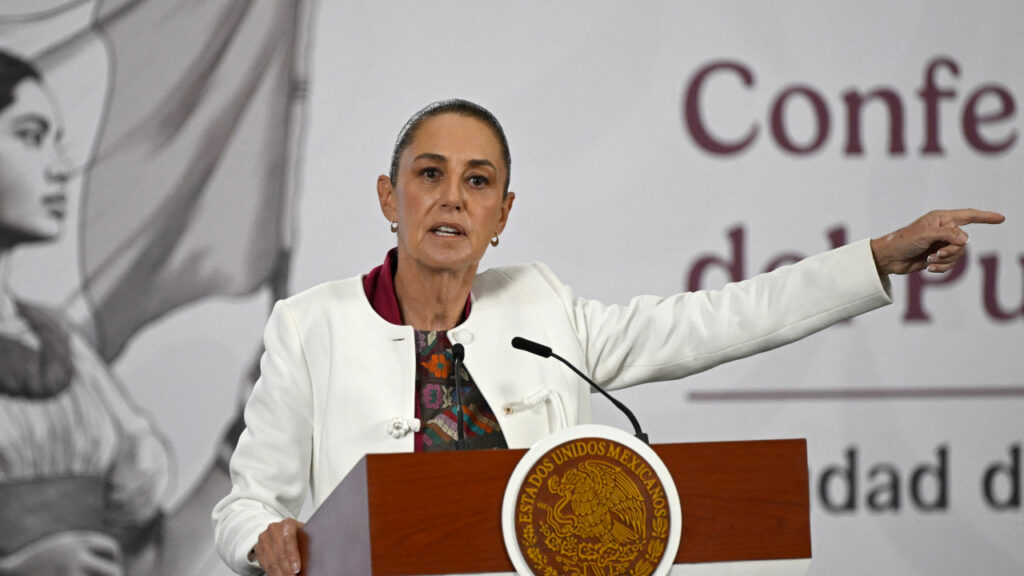Another Blow to Reproductive Rights, How Alabama’s Embryo Ruling Could Affect Women of Color
Once again, a male-majority court system has decided how and when a woman may or may not have children. The Alabama Supreme Court has just ruled that frozen embryos created through in vitro fertilization (or IVF) are considered children under state law. The move could put many people’s access to fertility treatment at stake.
The Alabama Supreme Court’s decision follows a lawsuit by three couples against a fertility clinic. The couples allege wrongful death after their frozen embryos were destroyed in an accident at the clinic.
Immediately following the ruling, the Division of Reproductive Endocrinology and Infertility at the University of Alabama at Birmingham says it has suspended IVF treatments.
“We are saddened that this affects our patients’ attempt to have a baby through IVF, but we must evaluate the possibility that our patients and our physicians could be criminally prosecuted or face punitive damages for following the standard of care for IVF treatments,” Savannah Koplon, a spokeswoman for the university, told CBS News in an email Wednesday.
The impact of Alabama’s embryo ruling on women’s reproductive health
Dr. Mari Mitrani, co-founder and chief scientific officer of Gattaca Genomics, told CBS News that the ruling poses “serious potential and unintended consequences for the fertility industry as a whole, threatening the rights of Alabamians to start a family.”
“This ruling has profound implications far beyond Alabama’s borders,” the advocacy group RESOLVE, The National Infertility Association, said in a statement on social media. “All Americans who want or need access to family-building options like IVF should be deeply concerned about this development and the precedent it will set across the country.”
The nonprofit said that within Alabama, it will likely have other “devastating consequences.” This could include “impacting the standard of care provided by the state’s five fertility clinics.”
“This new legal framework may make it impossible to offer services such as #IVF, a standard medical treatment for infertility,” the statement said. Furthermore, it is also unclear what this decision means for people who currently have stored embryos.
The impact may be even worse on women of color
The Alabama justices, citing anti-abortion language in the Alabama Constitution, ruled that an 1872 state law allowing parents to sue for the death of a minor child “applies to all unborn children, regardless of their location.”
“Unborn children are ‘children’… without exceptions based on developmental stage, physical location or any other ancillary characteristic,” Judge Jay Mitchell wrote in Friday’s majority ruling of the all-Republican court.
“This ruling declares that a fertilized egg, which is a cluster of cells, is now a person. It really calls into question the practice of in vitro fertilization,” Barbara Collura, executive director of RESOLVE, told The Associated Press on Tuesday. The group called the decision a “frightening development for the 1 in 6 people affected by infertility” who need in vitro fertilization.
According to the Pew Research Center, Black women make up 26% of the population who engage in IVF treatments. Nourbese Flint, president of All* Above All, told theGrio that she believes both Black and brown women are “more than likely going to be targets of criminalization” following the ruling.
According to data from Child Trends, a nonpartisan research organization, slightly less than 1% of Latina births are from pregnancies resulting from infertility treatment.
However, although the majority of births to Latinas age 35 and older are second or third births, new generations have changed their minds about decisions around starting a family.
Many Latinas are now deciding to postpone marriage or not to marry at all. Similarly, many Latinos are deciding to wait to have children for a variety of reasons. These include the high cost of living and prioritization of professional life, among others.
Starting at age 30, fertility rates begin to decline. At 45, the likelihood of getting pregnant naturally “is extremely low,” explains the Los Angeles Times. Consequently, “many 30-somethings resort to fertility treatments in order to start a family.”
However, with legislative precedents like Alabama’s, the independence and reproductive health of many women of color may be at risk.
If you still have doubts, ask Sofia Vergara
The most-known public example was Sofia Vergara’s legal battle against her ex, Nick Loeb, over custody of her frozen pre-embryos a few years ago. Vergara, 48 at the time, ended her engagement to Loeb, 45, in May 2014. The breakup came a year after they underwent in vitro fertilization together. The Modern Family actress, who has an adult son named Manolo, later married Joe Manganiello in November 2015.
As People magazine explained, in 2017, Vergara filed legal papers in California in hopes of blocking Loeb from using, without her written consent, the frozen pre-embryos they created through in vitro fertilization at ART Reproductive Center in Beverly Hills when they were still together in 2013.
However, in 2021, a court sided with Vergara. The judge granted her request for a Permanent Injunction and prevented Loeb from using the frozen embryos “to create a child without the explicit written permission of the other person,” according to court documents obtained by People.
“It is sad that Sophia, a devout Catholic, would intentionally create babies only to kill them,” Loeb’s statement read.
Had the situation played out in Alabama, Sofia Vergara would have had no say in deciding what would be done with her embryos. And most likely would have lost custody of them.
This is the bleak future that will face millions of women who choose whether or not to have children through in vitro fertilization.




